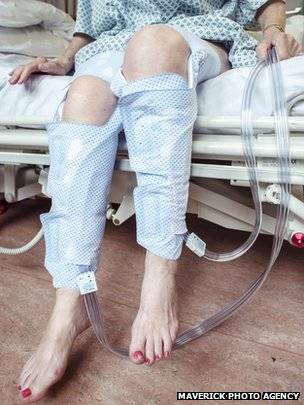Uncle Ferd says, "Yea, an' `sides dat, drinkin' hot coffee while yer havin' sex raises the risk of spillin' it an' burnin' Mr. Perpendicular too...

Sex and coffee 'trigger stroke'
5 May 2011 - Coffee linked to one in 10 burst blood vessels in the brain
Sex and coffee 'trigger stroke'
5 May 2011 - Coffee linked to one in 10 burst blood vessels in the brain
Coffee, sex and blowing your nose could increase the risk of a type of stroke, say researchers in the Netherlands. The study on 250 patients identified eight risk factors linked to bleeding on the brain. They all increase blood pressure which could result in blood vessels bursting, according to research published in the journal Stroke. The Stroke Association said more research was needed to see if the triggers caused the rupture. More than 150,000 people in the UK have a stroke each year with nearly 29,000 due to bleeding on the brain. Bleeding can happen when a weakened blood vessel, known as a brain aneurysm, bursts. This can result in brain damage or death. The researchers at the University Medical Center in Utrecht looked at 250 patients for three years to identify what triggers ruptures.
Caffeine danger
They found that coffee was responsible for more than one in 10 burst brain aneurysms. While people drinking coffee had only a 1.7 times greater risk, it is more common than other risk factors. Being startled increased the risk by more than 23 times, but was responsible for just 2.7% of cases. Dr Monique Vlak, a neurologist and the study's lead author, said: "All of the triggers induce a sudden and short increase in blood pressure, which seems a possible common cause for aneurysmal rupture."
Lower risk
The authors said one in 50 people has a brain aneurysm, but only a few rupture. Dr Vlak advised that: "Reducing caffeine consumption or treating constipated patients with unruptured intracranial (brain) aneurysms with laxatives may lower the risk of subarachnoid haemorrhage." The study only looked at the triggers for the burst. High blood pressure weakens blood vessels in the first place and can be caused by being overweight, smoking and a lack of exercise.
Dr Sharlin Ahmed, Research Liaison Officer at The Stroke Association said: "A sudden surge in high blood pressure can increase the likelihood of an aneurysm rupturing. However, it's very difficult to determine whether the triggers identified in this study are definitely related to the onset of a stroke as they could simply be put down to coincidence. "A lot more research needs to be carried out to assess whether each of the identified triggers could directly cause an aneurysm to rupture."
BBC News - Sex and coffee 'trigger stroke'





